

NO MPOX EMERGENCY, WE NEED TO BE PREPARED TO CHECK VIRUS SPREAD: PM

Ministry of Foreign Affairs is also main-
taining communication with Pakistani embassies abroad regarding the global Monkeypox situation The provinces have been directed to procure and stock testing kits and other equipment while quarantine centers have been set up in major cities across the country The meeting was told that some 600,000 people had been screened so far as a precautionary measure It was further informed that public awareness campaigns were being carried out by the National Institute of Health (NIH) the Ministry of Health and media outlets to educate the public on Monkeypox The national helpline, 1166, had also been activated to provide guidance on the disease Prime Minister Shehbaz Sharif instructed the NDMA and the Ministry of Health to remain on alert and prepared for any potential emergency
The meeting was attended by chief secretaries of Gilgit-Baltistan and Azad Jammu & Kashmir Health Coordinator Mukhtar Ahmad Bharath NDMA Chairman Lieutenant General Inam Haider Malik and senior officials
response The

ISLAMABAD S TA F F R E P O R T
Barrister Gohar Ali Khan Chairman of Pakistan
Tehreek-e-Insaf (PTI), has called on Supreme Court Chief Justice Qazi Faez Isa to confirm whether he will accept an extension, stating that such a decision would “clarify” many ongoing concerns
While addressing the media Gohar emphasized the significant responsibility that lies with Chief Justice Isa If Justice Faez Isa refuses to accept an extension, it will set a clear precedent and trend We respect all judges, he said Gohar also expressed frustration over his silencing in the National Assembly, particularly when attempting to respond to remarks made by Federal Defence Minister Khawaja Asif He criticized Asif s language towards the Khyber Pakhtunkhwa Chief Minister and condemned his statements We may be in the opposition, but we are not your servants,” Gohar remarked “If we speak, you should have the courage to listen ” Earlier in the day Defence Minister Khawaja Asif addressed the National Assembly alleging that PTI leader Ali Amin Gandapur spent the night at the

Kohsar Complex asking for forgiveness Asif labeled Gandapur a two-faced man and warned against trusting him Asif expressed dissatisfaction with the recent meetings of a parliamentary special committee, accusing it of focusing solely on PTI’s issues rather than addressing broader concerns of the assembly Gohar condemned Asif ’s comments about the special committee calling it an inappropriate practice You only told half the story We are not walking out; we are here to strengthen this forum Our women and children have been mistreated, he added
attack the state institutions he said adding nobody would be allowed to do so at any cost
He said the FIA would inquire into this issue and the PTI founder would be investigated in this regard The minister said the message posted on the social media from the account of the PTI founder was tantamount to sedition and creating an anarchy in the country
He said the PTI founder in the post had once again related himself with Sheikh Mujeeb-ur-Rehman, but he seemed to be elusive about the current situation in Bangladesh where the latter ’s statues were demolished by the people after realizing the truth about history
The minister said the examples quoted by the PTI founder in his social media posts were condemnable There will be an investigation as to who is running the accounts of the PTI s founder on social media, he noted Pe a c e a c h i e v e d w i t h n
ISLAMABAD S TA F F R E P O R T Federal Defence Minister Khawaja Asif on Friday alleged that KP Chief Minister Ali Amin Gandapur spent the entire night between Sept 8 and 9 at the Kohsar Complex pleading for forgiveness calling him a two-faced man and urging others not to trust him Speaking on a point of order during the National Assembly session, Kh Asif lambasted Gandapur stating “We don’t ask but they should ask what Ali Amin Gandapur was doing all night at the Kohsar Complex Asserting his point regarding Ganda-
pur s actions the Defence Minister said Gandapur spent the entire night pleading for forgiveness, yet we don t trust him Expressing frustration with the recent meetings of the special parliamentary committee he alleged that it seemed the committee was focused on solving PTI s issues rather than addressing the broader concerns of parliament He announced his decision to step down from the committee, stating that it was not fulfilling its purpose “I don’t want to be part of a committee that is constantly rehashing old grievances he added Khawaja Asif went on to criticise PTI for its use of the National Accountability Bureau (NAB) during its tenure, empha-
sising the need for the party to reflect on its actions over the past four years He also highlighted how, during PTI s rule, the party treated leaders like Nawaz Sharif and Maryam Nawaz in ways that in his words set no precedent The session of the National Assembly was later adjourned until 3 pm the following day Earlier, in a conversation with journalists, Khawaja Asif reflected on his own time in detention saying “We also endured six to seven months in jail I m not sure if any arrests were made from within Parliament; it seems they happened outside, he said Every political worker has their dignity and arrests should be made with respect Even during my imprisonment, I met my children in handcuffs This isn t something unique to Pakistan it happens everywhere ” he added On Sept 8 Chief Minister Ali Amin Gandapur had gone missing after the PTI s rally held in Sangjani Barrister Saif expressed concerns in the early hours of the next day, stating that all attempts to reach the Chief Minister Gandapur had failed and his phone numbers were switched off Later that day Ali Amin Gandapur reached the Chief Minister House in Peshawar, after remaining out of contact for more than eight hours
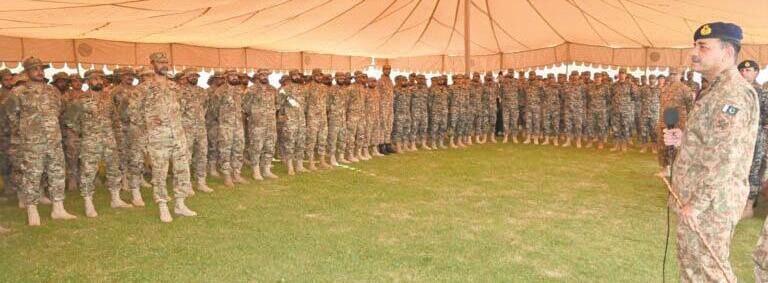

ADB APPROVES $320M LOAN TO IMPROVE
SAFET Y OF ROADS IN PAKISTAN

t i c r e l a t i o n s between the two countries T h e M i n i s t r y o f I n d u s t r i e s a n d P r o d u c t i o n p r e s e n t e d a
Additionally the cabinet approved the reconstitution of the Board of

Directors of the Korangi Fish Harbour Authority Karachi on the recommendation of the Ministry of Maritime Affairs The cabinet instructed that all provinces should be given representation on such government boards It also directed that any governmentowned corporations with incomplete boards should have them fully constituted as soon as possible On the recommendation of the Ministry of National Health Services, the cabinet approved the appointment of Muhammad Yaqoob, Assistant Director of the Drug Regulatory Authority of Pakistan as the Federal Inspector of Drugs for Balochistan Similarly on the recommendation of the Planning Ministry, the federal cabinet approved an amendment to the Cabinet resolution dated October 30, 2013 regarding the appointment of Planning Commission members from the


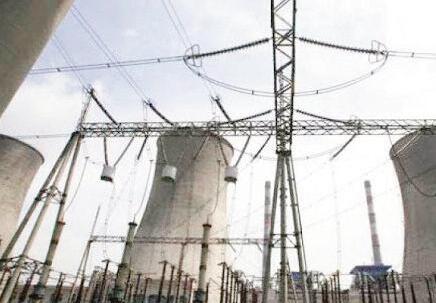






COMMENT
Getting on the agenda
PAKISTAN has suddenly seen a flurry of developments on the all-important economic front
Most significantly, enough to cause further bump upwards on a stock market already buoyed by the State Bank of Pakistan’s rate cut the International Monetary Fund placed Pakistan’s application for a 36month Extended Structural Adjustment Facility of $6 6 billion on the agenda of its Board of Directors meeting on September 26 This puts paid to the rumours that Pakistan’s case was going to go forward to some time in October It also indicates that Pakistan has arranged the rollover of a cumulative $12 billion in loans and deposits from Saudi Arabia the UAE and China as well as arranged for loans of 6 billion from commercial banks At the same time, there is some movement with the government that suggests it is preparing to bring a mini-budget imposing about Rs 18 billion in taxes, to meet the IMF s revenue target, which the Central Board of Revenue had shown itself unable to meet in the very first two months of the fiscal year It remains unclear whether the IMF has started imposing conditions even after the staff-level agreement because it senses how desperate Pakistan is to obtain a package, or because it tries to work in new conditions before there is BoD approval of the staff-level agreement
Though the recent Budget imposed a range of taxes mostly in the shape of a spread of the GST it has not really been enough Some measures are boeing pushed through such as the re-evaluation upwards of properties in 42 cities which should yield greater revenue The new measures seem an exercise at placing a fresh burden on those already in the tax net rather than any attempt to bring more people into that net The difference this time is that it does not seem the salaried class will be adversely affected The IMF may well be waiting to see whether the government will summon up the political will to legislate tougher penalties for evasion The Shehbaz government did not really serve the treatment it has got from the IMF, because it has been as cooperative as possible Its own initiatives, especially in the power sector, have found the

Dedicated
Hameed Nizami Arif Nizami (Late)
M A Niazi Editor Pakistan Today Babar Nizami Editor Profit


Aand to instill confidence among the international investors
The Stand-by Agreement (SBA) is a programme designed especially for short-term financial solutions by the IMF The goal is to offer assistance to struggling countries while giving them reforms that will make sure to restore better economic conditions in the country For Pakistan, this has often meant implementing structural reforms The overall result of


THE spectre of National Security is haunting Pakistan Since the inception, there was not a single year when Pakistan was declared safe and secure Official rhetoric has always been that Pakistan is under threat; both from internal and external forces The result of this constant regime of fear intimidation and speculation is hopelessness among the populace and a rising level of apathy towards the future of the country It is the right time for the state and its security institutions to realize that the myth of national security has no buyer in contemporary times We are dead walking into darkness The Government must shun the notions of ignoring the
d b e e n s u r e d b y e m p o w e r i n g t h e d e m o c r a t i c i n s t i t u t i o n s T h e e l e c t e d r e p r e

Punjab’s Power Play

these conditions is a better fiscal discipline in the economy On 12 July 2023, a $3 billion SBA was approved for Pakistan by the Executive Board of the IMF This has proven to be a critical moment in the economic history of Pakistan The approval of the deal resulted after prolonged negotiations The negotiations discussed that Pakistan needs to understand the severity of the economic issues and is in dire need of reforms that address its economic challenges After all if loans are taken and the economic conditions are not improved through newer reforms it would just be a cycle of borrowing until the economy is completely in deficit
Understanding the importance of these necessary reforms, Prime Minister Shehbaz Sharif has publicly stated that the government is working hard to meet the conditions of the IMF The PM s remarks underline the government s awareness of the issue: We hope that all conditions and requirements of the IMF will be met in time and our case will be approved by the [IMF Executive] board The statement reflects the determination of the government to adhere to the terms of the deal
However, this commitment is absolutely necessary because without implementing better reforms, the economy does not have any chances of getting better The IMF deal makes sure to implement these reforms in exchange for financial support
With this regard the PM also assured the country that while this is a huge step we can expect this loan to be the last one of the decade This is a promising statement that implies a strategic goal Pakistan has been observed in the recent past to rely a little too much on the IMF The country received 23 IMF bailouts in 75 years Now is the time : Must ensure the new IMF programme is the last one, says the PM The statement is an optimistic approach that focuses on reducing reliance on financial support and seeking better economic solutions
If we take a look at the requirements and reforms of the IMF we can observe that the SBA may work in favour of Pakistan
The requirements include making fiscal adjustments that include reducing government spending on fuel and electricity, which
Architectural Assault
People must be the focus of national security
Exemplar y Accountabilit y System in Pak Army
basit alvi
THE Pakistan Army upholds strong accountability within its ranks As a key institution in the country, it maintains a rigorous system to ensure integrity, discipline, and operational effectiveness The Pakistan Army operates under a clear legal framework including the Pakistan Army Act 1952 which governs conduct and discipline Military courts address offenses, ensuring that personnel are held accountable for violations and maintaining discipline within the ranks The Army utilizes various internal oversight bodies to monitor and ensure regulatory compliance These include specialized units for auditing and reviewing operational and financial activities
Regular inspections and reviews are carried out to verify adherence to procedures and standards The Pakistan Army undergoes audits by the Auditor General of Pakistan which assess financial management of military expenditures to ensure effective and transparent use of funds This oversight helps prevent financial mismanagement and corruption, fostering fiscal responsibility
Procurement processes within the army are strictly regulated, with a focus on transparency to ensure resources are acquired efficiently and ethically Adherence to established procedures and regular reviews help prevent irregularities and maintain accountability in resource allocation The Pakistan Army upholds a rigorous code of conduct that emphasizes integrity, professionalism, and ethical behaviour Service members must adhere to established standards with any deviations addressed through disciplinary actions This code is essential for preserving the army s reputation and operational effectiveness A structured system is in place for handling complaints and grievances, including channels for reporting misconduct or unfair treatment These mechanisms ensure thorough investigation and resolution of issues fostering a transparent and accountable environment Training programmes in the Pakistan Army stress the importance of accountability and adherence to standards Personnel are educated on their responsibilities and the procedures for reporting and resolving issues
instilling a culture of responsibility and professionalism from the start Regular performance evaluations and feedback mechanisms assess the effectiveness and accountability of personnel identifying areas for improvement and ensuring adherence to conduct and performance standards
Senior leadership is pivotal in maintaining accountability, with commanding officers and higher officials ensuring their subordinates follow regulations and ethical standards They conduct periodic reviews and audits to maintain oversight and address any issues External oversight bodies such as parliamentary committees, also contribute to accountability by reviewing military operations and expenditures, adding an additional layer of checks and balances The Pakistan Army’s commitment to accountability is demonstrated by its response to significant incidents For example following the 2015 Panama Papers leak which implicated several high-profile figures, including some with military connections, the Army conducted an internal review to address potential implications for military personnel The leadership ensured that implicated individuals faced appropriate scrutiny showing its commitment to transparency and integrity
Operation Radd-ul-Fasaad, launched in 2017, involved extensive counter-terrorism efforts and military operations to maintain stability in Pakistan During the operation, the Pakistan Army enforced stringent accountability measures to ensure that personnel actions conformed to legal and ethical standards This involved regular oversight of military operations, strict adherence to rules of engagement, and thorough documentation of activities The army's dedication to transparency and compliance with international norms was evident in its conduct which aimed to minimize civilian casualties and ensure accountability for all actions In 2018, the Pakistan Army supported national efforts to combat corruption by addressing allegations of financial mismanagement and corruption across various sectors The Army's role included conducting internal audits and reviews of military financial transactions and procurement processes Leadership took proactive measures to ensure that any allegations involving military personnel were thoroughly investigated This proactive approach preserved the Army's reputation for integrity and supported broader national
anti-corruption efforts During the 1999 Kargil
Conflict between India and Pakistan there was significant military engagement in the Kargil region After the conflict, extensive reviews of military conduct and strategies were conducted The Pakistan Army carried out an internal review to evaluate operational and strategic decisions assess military leadership performance and identify lessons learned This review aimed to ensure accountability for any shortcomings and improve future strategic planning and execution In 2021, a tragic military helicopter crash raised concerns about operational safety and accountability The Army responded by launching a thorough investigation examining maintenance procedures operational protocols and pilot conduct The inquiry s findings led to recommendations for enhanced safety measures and procedural improvements In 2019 the Army introduced a new accountability framework designed to improve transparency and efficiency This framework updated procedures for financial management procurement and internal audits emphasizing adherence to ethical standards and introducing new mechanisms for reporting and addressing grievances This initiative reflected the Army’s commitment to modernizing its accountability systems The Army also has a noteworthy Field General Court Martial system that applies uniformly to all ranks Recent Field General Court Martial proceedings involving a retired Army general have sparked speculation, partly due to public unfamiliarity with the process The Field General Court Martial procedure consists of three stages: before the commencement during the process and after completion In the initial stage a summary of evidence is recorded including statements from prosecution and defence witnesses and the accused The accused has the opportunity to cross-examine witnesses and a provisional charge sheet is prepared The evidence summary is then forwarded to the Judge Advocate General s Department to initiate the case The Judge Advocate General drafts a detailed report based on the recommendations, leading to the preparation of a charge sheet Subsequently, an order is issued by the relevant authorities to convene a Field General Court Martial In the second or trial stage the Field General Court Martial process begins This involves establishing the court, swearing in the president and other members, and granting the accused the right to select a counsel of his choice Additionally, the accused is provided
with a Defence Officer who assists in guiding the case During this stage both the prosecution and defence counsel present their cases before the court, witness statements are recorded under oath, and prosecution witnesses are subjected to cross-examination Witnesses can be fully cross-examined during this stage The defence witnesses are also cross-examined and the accused s statement recorded Then the prosecution and defence counsel discuss the witness statements, and after all crossexaminations are completed, the court deliberates on its decision Once the hearing is concluded the court submits all proceedings to the Judge Advocate General Department for further investigation and legal review
After this scrutiny the findings and proceedings are forwarded to the relevant competent authority for confirmation If the sentence involves imprisonment with hard labor, the offender is handed over to the jail authorities Upon confirmation of the sentence by the COAS or relevant authority the offender has the right to appeal within 40 days or request clemency from the COAS who may reduce or waive the sentence entirely
The court-martial system is essential for upholding discipline and accountability, particularly among senior officers Historically highprofile cases involving senior military personnel have demonstrated the army s commitment to maintaining high standards of conduct For example, after the 1958 coup led by General Ayub Khan, martial law was imposed, and senior officers who opposed the new regime faced court-martial proceedings These court-martials aimed at consolidating the new government s control resulted in demotions imprisonments and dismissals helping to solidify the new military order Similarly following the 1999 Kargil Conflict, senior officers were scrutinized for their decisions and actions Post-conflict reviews led to several court-martial proceedings for officers involved in the operation such as Brigadier (retd) Amir who faced court-martial for operational failures
The resulting punishments including retirement in disgrace and reprimands, underscored the army s commitment to addressing operational shortcomings and maintaining accountability The 2011 Abbottabad raid by U S Navy SEALs which resulted in the death of Osama bin Laden sparked substantial controversy and led to intense scrutiny of Pakistan s military and intelligence services
Subsequent reviews led to court-martials for senior officers accused of security and intelligence failures Following the Abbottabad
The c ase for an international anti- corruption cour t

incident, several high-ranking officers faced court-martial proceedings for their inability to detect and prevent the operation Investigations focused on the conduct of the officers responsible for security in the area with punishments including dismissals and formal reprimands In 2017, a major corruption scandal involving high-ranking military officials emerged with allegations of fund mismanagement and procurement irregularities The Pakistan Army responded with thorough investigations resulting in several court-martials Officers found guilty faced punishments such as demotion, dismissal, and imprisonment; for instance, Maj Gen (retd) Shahid was dismissed and faced legal consequences for financial misconduct This underscored the army s zero-tolerance stance on corruption In 2019 Brig (retd) Nadeem faced courtmartial for operational misconduct and authority misuse, resulting in his dismissal and a formal reprimand In 2022, Lt Gen (retd ) Asim Bajwa was court-martialed for financial misconduct and mismanagement leading to his dismissal and legal actions The recent court-martial of a former Corps Commander further demonstrated the army s commitment to accountability and transparency In a recent press briefing, DG ISPR revealed that an application concerning the


the capacities of individual nations to address them effectively The International Court of Justice, the UN’s judicial arm, has been the cornerstone of adjudicating international treaties and conventions But its scope is limited and nations can opt out of its jurisdiction as seen with the United Nations Convention Against Corruption
This loophole in the international justice system leaves a gaping vulnerability in the fight against corruption Enter the proposed International Anti-Corruption Court (IACC) a judicial body that could provide an invaluable solution to these challenges particularly within the framework of a proposed UN Tax Convention The IACC could emerge as a powerful force in combating corruption, illicit financial flows (IFFs), and tax evasion, issues that have stifled the economic potential of developing nations particularly in Africa
A new global tax body proposed under
the auspices of the United Nations has the potential to reshape how tax norms are created and enforced on an international scale
Known as the UN Tax Convention, this initiative seeks to establish a multilateral, democratic fiscal body where every nation, irrespective of economic power plays an active role in the decision-making process
This proposal is not merely about regulating taxation it is about addressing the fundamental inequalities embedded in international financial systems
The gap between rich and poor nations has widened and one of the significant drivers of this disparity is the loopholes and grey areas in international tax laws Multinational corporations (MNCs) and high-net-worth individuals (HNWI) routinely exploit these gaps, employing tactics such as transfer pricing, trade mis-invoicing, and shifting profits to low-tax offshore jurisdictions These activities, which constitute illicit financial flows rob nations particularly developing ones of the revenue needed for essential services like healthcare education and infrastructure
The magnitude of illicit financial flows in Africa is staggering Estimates suggest that African nations lose between $50 billion and $89 billion annually to IFFs According to the African Union and the United Nations Conference on Trade and Development (UNCTAD) this loss represents approximately 3 7% of the continent s GDP The implications are dire: countries struggling with poverty, underdevelopment, and poor infrastructure are being deprived of crucial re-
sources through corruption and tax evasion by both domestic elites and foreign corporations
Oxfam s report, Africa: Rising for the Few,” highlights the extent of this problem In 2010 alone, Africa lost $11 billion due to tax avoidance strategies employed by multinational companies This figure is six times the amount required to address the healthcare funding gap in Ebola-stricken countries like Sierra Leone, Liberia, Guinea, and Guinea-Bissau It s clear that the stakes are high, and the need for robust international mechanisms to combat these flows is urgent
It’s not just foreign corporations that are to blame High-profile cases involving African business magnates and political elites who evade taxes have become all too common These individuals often engage in complex avoidance schemes or conceal their assets offshore, further exacerbating the continent’s economic challenges Corruption and tax evasion are interlinked feeding into a vicious cycle that hinders development perpetuates inequality and undermines governance
One of the most effective tools in the fight against corruption is beneficial ownership transparency (BOT) BOT requires the public disclosure of the individuals who ultimately own or control a company making it far more difficult for corrupt individuals to hide their assets By pulling back the curtain on opaque corporate structures, BOT can help prevent illicit activities like money laundering and tax evasion
The UN Tax Convention could serve as
the foundation for these transparency efforts By establishing automatic information exchange public country-by-country reporting and a global asset registry, the convention would significantly improve the ability of governments and international bodies to track wealth and ensure that corporations and individuals pay their fair share of taxes
Such measures would also lay the groundwork for a shift toward unitary taxation where multinational companies are taxed based on the economic activity they generate in each country, rather than where they declare their profits Debt is another critical issue that ties into the larger conversation about corruption and international financial obligations Many African nations are trapped in a cycle of borrowing and repayment, often under unfavourable conditions Corruption plays a significant role in worsening these debt crises Political elites embezzle borrowed funds while non-transparent loan agreements create opportunities for personal gain at the expense of national development
The taxpayer ultimately bears the burden of repaying these debts, highlighting the critical role that tax revenue plays in sustaining a nation’s financial obligations If corruption and illicit financial flows are not addressed the cycle of borrowing and debt will continue locking nations into a perpetual state of dependency and underdevelopment This brings us to the International AntiCorruption Court (IACC) The IACC could fill the gaps left by existing international
legal frameworks providing an independent body to prosecute corruption cases involving MNCs HNWIs and state actors In doing so, it would hold these actors accountable for the economic harm they cause, particularly in developing countries By focusing on tax-related corruption and illicit financial flows the IACC could support the goals of the proposed UN Tax Convention The court could help enforce international norms around beneficial ownership transparency and public country-by-country


Tdo not realise that last June the voters took away their licence to decide unilaterally who is a desh bhakat or what is anti-India or when a critique of Modi is an insult to the nation
Paradoxically when these saffronite eager beavers protest too much about Rahul Gandhi’s remarks during his current American visit they do play straight into his hand What the Congress leader has tried rather adroitly is not to allow the RSS brass get away with the bogus notion that they are an entity different from Narendra Modi, the BJP and the new ruling coterie, dominated by corporate crooks This narrative of differences between Nagpur and New Delhi are somehow meant to imply that whereas the voters in the 2024 Lok Sabha elections have appropriately punished the Modi regime for its record of incompetence and corruption and its communal designs, the RSS continues to retain its pristine moral credentials This narrative has been cleverly introduced in the political discourse after the RSS had its recent conclave in Kerala Suddenly we are told that the Nagpur bosses have ideological reservations about Narendra Modi and his assiduously manufactured personality cult Somehow, we are also expected to believe that the RSS is even unhappy about the BJP’s cultivated politics of communal polarisation This narrative is predicated on a make-believe fallacy that the
Nagpur commissars were kept in the dark as Modi spent billions of tax-payers’ money on prettifying his image as a Grand Saviour a globally-respected and admired Vishwaguru as a strategic tactician who could advice the Indian Air Force pilots how to cheat the weather, or, a prime minister who could cynically use coercive agencies to build his image as a anti-corruption crusader etc It is rather late in the day for any RSS functionary to pretend that he was aware of how the prime minister was assembling strawbrick by straw-brick, the edifice of an authoritarian-strong man It is equally laughable for the RSS or its apologists to argue that Modi and Amit Shah had over-stirred the communal cauldron for narrow electoral gains and thereby the two counterfeit Chanakyas have besmirched Hindutva s global image We are expected to believe that the RSS bosses are discovering that the doings of the Shahnshah and Shah have given Hindutva a radical image, as bad as “radical Islam ” This, too, is unadulterated poppy-cock After all every junior reporter covering the BJP is aware of the omnipotent presence of the organisation secretary seconded from Nagpur, at various levels, throughout the length and breadth, of the land The RSS bosses and every Swayamsevak was an equal partner is every single political sin committed by the Modi coterie It must be said to the credit of Modi that
since his days as chief minister of Gujarat he has had the measure of these self-styled moral guardians Many in Gujarat have admired how he was able to suborn the overhyped simplicity and over-hawked integrity of the busy-bodies among the swayamsevaks And, these swayamsevaks were very much in Modi’s corner as he crowbarred his way to the top of the BJP pile in 2013 Since the Hindu revolution of 2014 the otherwise austere and unbending moral men have learnt to enjoy and appreciate the finer advantages of power Perhaps Dattopant Thengadi was the last big presence in the leadership slate to have some kind of moral scruples and ideological principles Now the RSS from top to bottom is dominated by practical men And they have winked at the Modi-Shah duo as they injected humongous amorality in the body politic For instance, no RSS leader dare express a view on the smelling rotten eggs at SEBI, whereas the stench of that corruption has pervaded every sensitive nostril across the nation In some liberal quarters there is a flickering hope that at last the RSS bosses would be able to provide a course-correction to the ruling coterie; even bring about a new order Now that the voters have given Modi a severe hair-cut, the Nagpur bosses can also give him a dhakka (push) Nothing of the kind can happen – nor will the Modi-Shah cabal allow it to happen Those who happen to control of the levers of Indian state have no qualms in using their enormous reach and experience in use of coercive powers against the adversary irrespective of the colour of his cap If it comes down to a confrontation between the Modi clique and the RSS, the outcome will be entirely to the disadvantage of the Nagpur-wallahs The unvarnished fact is that that under Modi the BJP has come to resemble a sleeker version of the old Congress; the BJP leaders and activists are interested solely in self-aggrandisement The new BJP

INDIA’S TOP COURT FREES JAILED
MODI OPPONENT KEJRIWAL ON BAIL
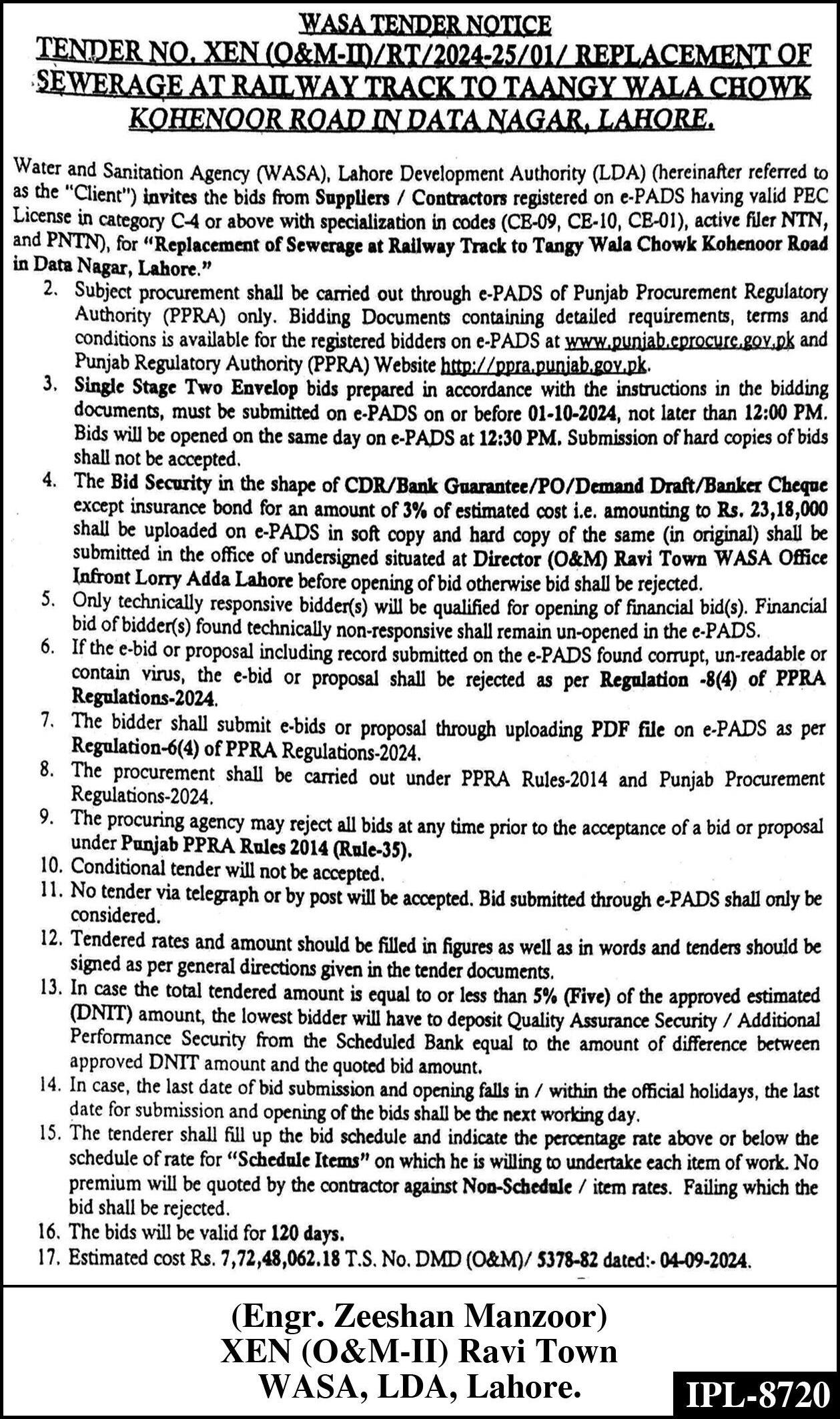

US backs t wo permanent UNSC seats for African nations

R T Chinese President Xi Jinping urged northwest China s Gansu Province to deepen reform make innovation and do solid work to improve the people s wellbeing and the region s prosperity to write a Gansu chapter in Chinese modernization Xi also general secretary of the Communist Party of China (CPC) Central Committee and chairman of the Central Military Commission made the remarks during an inspection from Tuesday to Friday Gansu should take solid steps in improving ecological conservation and restoration, accelerating green and low-carbon transition further deepening reform and opening up comprehensively promoting rural revitalization across the board better securing people s livelihoods and strengthening ethnic unity, Xi said during his inspection tour in Gansu Province On Tuesday afternoon Xi visited the Fuxi Temple in Tianshui City where he learned about the protection and preservation of cultural heritage The temple is dedicated




SBP INJECTS RS11.7 7 TRILLION INTO MARKET THROUGH OMOS
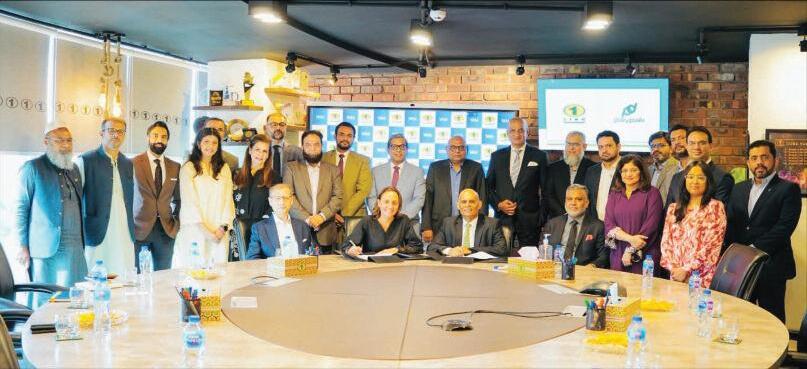
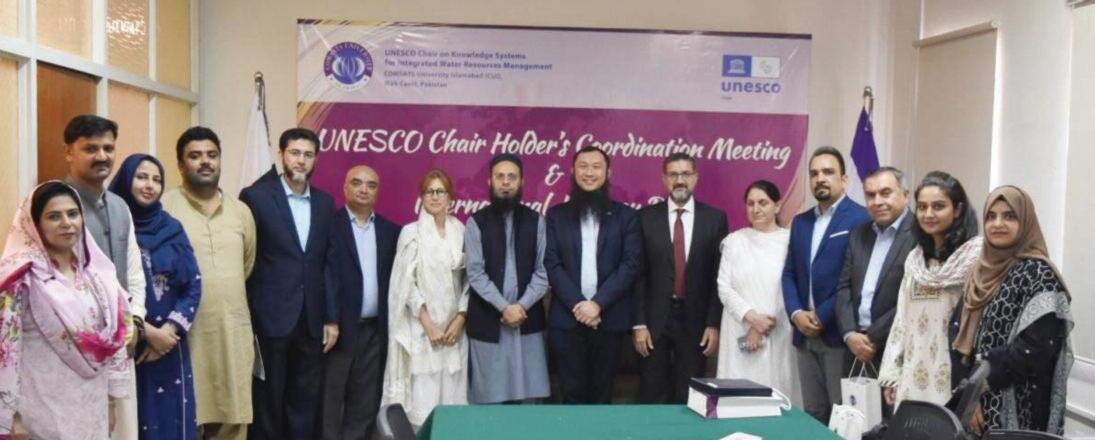

authorities giving attendees direct access to key expertise on infrastructure and an investmentready environment in Pakistan During the ceremony, Ambassador Hashmi emphasized 13
infrastructure He also recognized the vital participation of organizations like


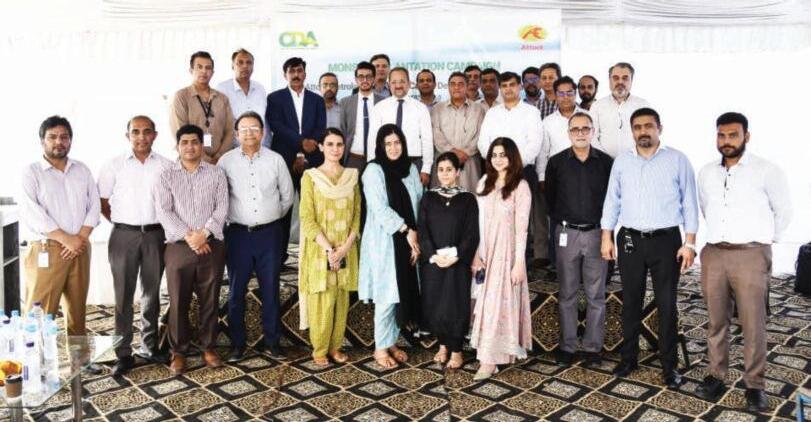



O R M S T O A C H I E V E S D G S
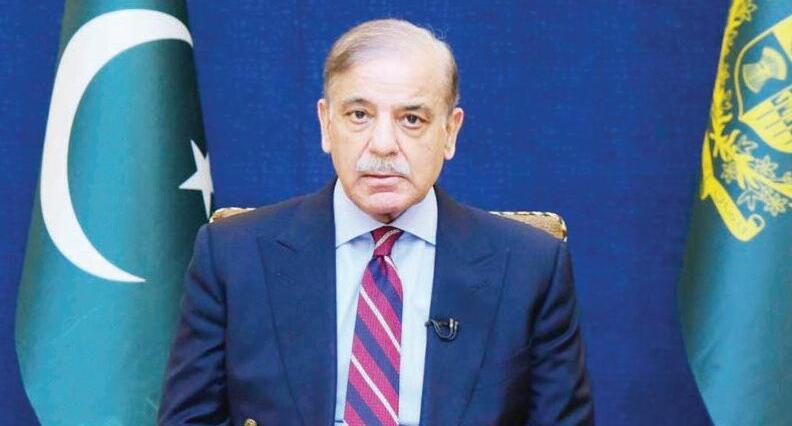
FIA books Advisor to KP CM, A C e official, and vlogger for defaming judge
ISLAMABAD
The Federal Investigation Agency (FIA) has filed a First Information Report (FIR) against a special adviser to the Chief Minister of Khyber Pakhtunkhwa (KP), a KP Anti-Corruption Establishment (ACE) official and a vlogger for allegedly defaming Judge Humayun Dilawar in a land dispute case
The ACE KP had initially registered the FIR on September 9, targeting Judge Dilawar, his elderly father, an uncle, and a brother over the land dispute The following day arrest warrants were issued by a judicial magistrate in Bannu
The FIA s action stems from a complaint by Ahmed Sadiq Khan the judge s nephew, who alleged that the accused retired Brigadier Mohammad Musaddiq Abbasi, ACE KP’s official Mujahid Ali Shah vlogger Imran Riaz Khan and others had tarnished the reputation of Judge Dilawar and his family Judge Dilawar had previously convicted former Prime Minister Imran Khan on August 5, 2023, for failing to declare Toshakhana gifts

in his asset declarations
The FIR claims that ACE head constable Shah shared the arrest warrants on social media It also indicates that Abbasi recorded a statement concerning the ACE case
The FIA has highlighted that the alleged actions fall under Section 20 of the Prevention of Electronic Crimes Act, pertaining to privacy violations The investigation will also look into the involvement of PTI Canada’s X handle Judge Dilawar s brother received protective bail from the Islamabad High Court (IHC) on
Wednesday and appeared before the Bannu magistrate on Thursday, who subsequently retracted the arrest warrants The case relates to a land purchase in Bannu from 1970 which was later developed into a housing scheme with approvals from the previous PTI government
The current KP administration is accused of targeting the family after taking office following the February 8 elections Abbasi in a video message alleged that the judge and his family had manipulated court documents to illegally seize the land
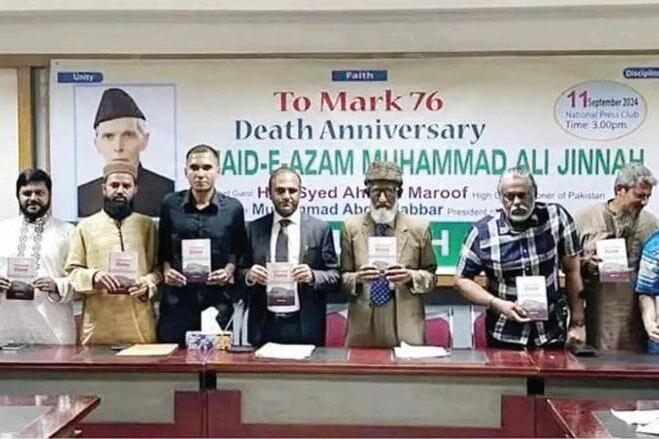
DHAKA S TA F F R E P O R T
What is described as a historic first, Bangladesh marked the death anniversary of Quaid-e-Azam Muhammad Ali Jinnah in Dhaka
The 76th death anniversary of Muhammad Ali Jinnah the founding father of Pakistan was commemorated at the National Press Club in Dhaka with Urdu songs and poetry on Wednesday
Speakers on the occasion highlighted various aspects of Jinnah’s life remarking that Pakistan would not have been created without him and without Pakistan Bangladesh too would not exist
Unfortunately, the Pakistani high commissioner of Bangladesh could not attend the event as the chief guest However Deputy
High Commissioner Kamran Dhangal was in attendance
Prof Dr Mostafizur Rahman presented the keynote paper, outlining various events from Jinnah s life from his birth to his death Jafarul Haq Jafar recited an Urdu poem about Jinnah while two Pakistani students studying in Bangladesh Mohammad Tahir and Kamran Abbas performed songs in Urdu dedicated to him
If Bangladesh had not been part of Pakistan in 1947, we would have been in the same position as Kashmir today with the Indian junta holding weapons to our necks Bangladesh gained independence because of Pakistan, which Jinnah helped create, Samsuddin said
“Why should we change the name of Allama Iqbal Hall or Jin-
nah Avenue? These changes were made because Delhi wanted them but we did not Bangladesh must foster strong relations with China and Pakistan ” Another speaker, Nazrul Islam said: “Regardless of how it happened we have gained independence We must maintain our relationship with Pakistan If Jinnah had not been there, Pakistan would not have existed, and without Pakistan, Bangladesh would not exist Jinnah is the father of our nation but we do not acknowledge it We must preserve our brotherhood and I hope that both Jinnah s birth and death anniversaries will continue to be observed here every year
Md Shakhawat, another attendee said that after 1757 the political incompetence and strife in the Indian subcontinent were ended by Jinnah Had Jinnah not taken responsibility for Bangladesh in 1947, we would have been in the same situation as West Bengal, remaining a part of India It was because of his leadership that East Pakistan remained united with West Pakistan Now we must assess our friendship, he added Meanwhile, Deputy High Commissioner Kamran Dhangal said Jinnah’s leadership in the Muslim League had been outstanding It was the beginning of an important mass movement for the Muslims of


